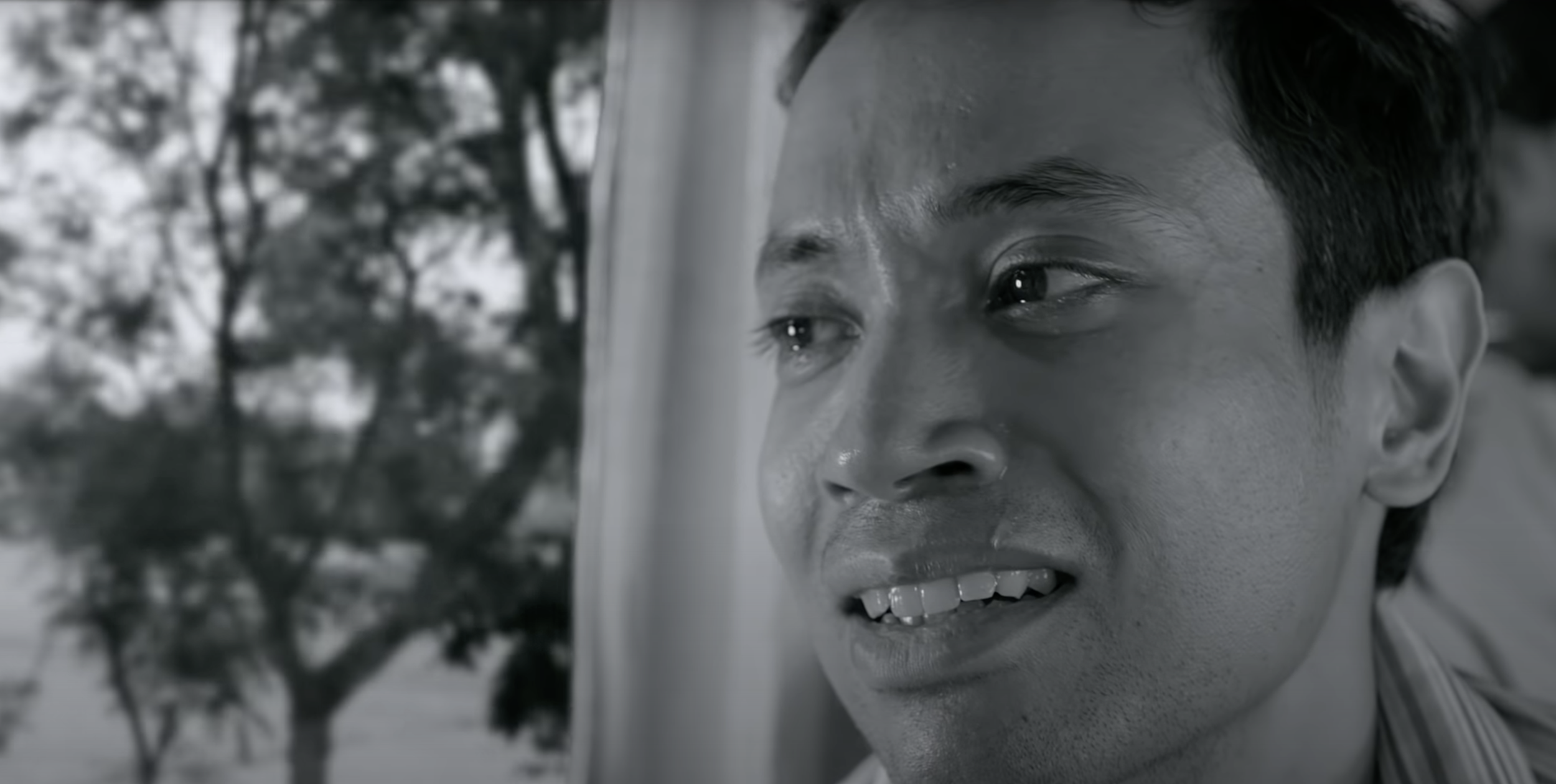A Day in the Life of Anil Bagchi - Anil Bagchir Ekdin Regista: Morshedul Islam
A Day in the Life of Anil Bagchi - Anil Bagchir Ekdin
Directed by Morshedul Islam
Starrings: Aref Syed, Jyotika Jyoti, Gazi Rakayet
Country: Bangladesh
Year: 2015
Review Author: Roberto Matteucci
Click Here for Italian Version
“Leave this mess, Anil.”
In 1947, the British abandoned India. Coexistence between Hindus and Muslims was impossible. The consequence was a political and geographical split, with thousands of deaths and the transhumance of millions of people: Muslims fled to Pakistan and Hindus to India.
The peculiarity of Pakistan was the division between two territories more than two thousand kilometres apart: Pakistan and East Pakistan, now Bangladesh.
Despite having the same inhabitants, East Pakistan was ruled as a province, with limited power.
In 1971, a violent and military rebellion began. The Awani League, the nationalist party of Bangladesh, proclaimed independence. The Pakistani army unleashed ferocious repression by occupying many cities. The civil war broke out. Quickly, also due to the direct intervention of the Indian armed forces, the situation was reversed and Bangladesh won and was separated. The victory was not painless: there were three million deaths. (1)
It is an unknown episode of genocide; Bangladesh is far and away.
The film A Day in the Life of Anil Bagchi - Anil Bagchir Ekdin by director Morshedul Islam, screening at the 13th World Film Festival of Bangkok takes place during the Bangladesh war.
Anil is a shy young man who grew up in Rupeshwar, with his dad and sister. They are Hindu. His father is an English teacher, cultured, mature, a lover of nature and river.
He always repeats the quote from William Shakespeare, The Tragedy of Julius Caesar :
“Cowards die many times before their death; the valiant never taste of death but once ".
The figure of the parent fills the screen, the camera focuses on him. His role is crucial to understanding and enhancing Anil's behaviour: the father is a profound skilled of English while the son fails the English exam.
When the independence war broke out, Anil was on business in Dhaka. For the Hindu, the condition is worrying. When news of his dad's death reaches him, he tries to return to Rupeshwar in search of his sister.
The owner where he lives, warns Anil of the risks, during the conversation, there is an aerial-shot while they were drinking tea.
Anil appears naive, but he is honest. It is his father's teaching: he must be honest in any circumstances. Funny is the sequence of the interview, with a foreign journalist, of two passers-by, one of them is Anil. Under police control, the other person declares an exhilarating statement: population is happy. His hallucinated gaze is in closeup, and it is clearly false. Anil, on the other hand, cannot be faked, therefore, indifferent to the threats of the agents, he says: "Did you see children in the streets?" There are no children in the streets, they are all locked in the house because the city is dangerous.
Anil's character is lively, decisive, despite his introversion and discretion.
The trip at home is not recommended for Anil. The bus is crowded of scared humanity, Ayub meets a chatty, eccentric, nosy but generous and expansive Muslim: "It is not time for unnecessary talking."
There are many police checkpoints. The fear is great. Many have something to hide. Ayub recognizes that Anil is Hindu and offers himself, or rather, decides to protect him. He pretends to be a relative on the road with Ayub's family for a wedding. On the old bus, comical happenings alternate with others of sadness, loneliness, and terror.
The centre of the film moves from Anil to Ayub. He depicts the humanitarian world of a disinterested Muslim. His chatter is endless and with incredible Pindaric Flights.
Ayub, even, in the encounter with the soldiers, for inquiring if they were circumcised, makes it ridiculous.
The three segments of the plot have a structure full of flashbacks, and dissimilar languages.
It begins when Anil was a baby, he was in the village, around there was a colourful popular festival. A snake escaped and scares Anil. The colours of the celebration became black and white of awakening. Anil is in Dhaka, he has a nightmare: Pakistani militaries, they are breaking in the door of the room.
Chromaticity for Morshedul Islam is important. He gives meaning to colour.
The flashbacks of his cheerful childhood, of the father, of the sister, are multicoloured. He stops dreaming and face the tragic reality. The difficulties, the sufferings are exclusively in black and white. Black and white is elegant but makes everything distressing, with a background of sadness.
In the end, the colour comes back. Anil is again near the river of his infancy; the past and today match. Anil returns to the happiest place of his life. The director films the animals of the river, could Anil be reborn in one of these?
The author weaves the story of the birth of a nation, of the atrocities suffered to be free, with the story of Anil's family. Comparing the torment days against the carefreeness of the time of youth. In addition to the particularity of Anil and Ayub, other sequences are symbolic for a historical film.
As the irony of a Pakistani colonel, in the closeup with the obligatory Rayban glasses, while, in simple English, describes the excellent atmosphere of Dhaka.
Or the loving confrontation of the father with his brother about fleeing to India to save themselves: "This is my country." "This land is not ours." The difference, between the two characters, is evident. Optimism will be fatal.
Long-shot and high-angle-shot, are used to penetrate the psychology, the historical events. The budget is low, there are no huge choral scenes to represent the violent events, but the author with skill uses the few actors to show the evil of Pakistani soldiers. Ayud is the symbol of the wish of resistance of Bangladesh. He is not afraid, bravely helps Anil and clashes with the arrogant checkpoint officer.
The voiceover allows us to distinguish the different moments. The voice is useful and practical but sometimes is mellifluous.
Then, there are the heartbreaking songs. Anil is on the bus, he is looking outside, he is absent and the music gives a moving melody.
[1] www.newworldencyclopedia.org/entry/Bangladesh_War_of_Independence











On 21 December 2012, according to the alleged Mayan calendar, should have been the date of the end of the world. The catastrophic prediction, spread by internet, frightened the most delicate minds. The film Videophilia (And Other Viral Syndromes) - Videofilia (y otros síndromes virales), by director Juan Daniel F. Molero, narrates an episode in Peru related to the prediction. The story has an electrified evolution between the tragic and the amused. The author depicts it with dirty shots, grainy images, extreme editing between video games and porn chat, with emoticons peeking out on the screen.